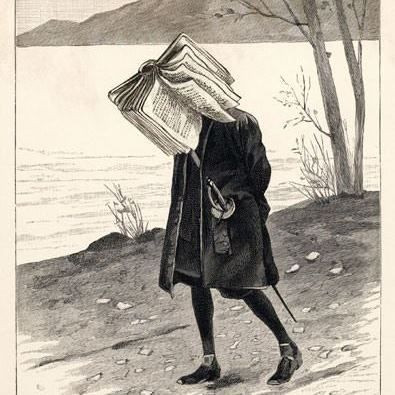Teacher question:
I’m a regular reader and it seems to me that you undervalue activities like Reader’s Workshop and what it can do for children. Letting them pick their own books is great for their motivation and this isn’t like free reading, independent reading, or SSR because I meet with them regularly, one-on-one, to talk about what they are reading. There is more to teaching reading than phonics lessons or fluency practice.
Shanahan response:
Thanks for being a regular reader and I hope that you’ll continue to be after you read my answer.
Your inference is right on the button. I’m not a big fan of Reader’s Workshop—though it wouldn’t break my heart if you occasionally built a unit around Reader’s Workshop. A little of that activity isn’t likely to do much harm and it might allow you liven things up a bit.
More than that would be a bad idea if the purpose was to help kids to become powerful readers.
Basically, my problem with Reader’s Workshop is the lack of teaching (and the idea of mini-lessons is basically to minimize teaching).
You didn’t mention how many kids you’re responsible for, but let’s pick a moderate number: 25. And, let’s say those 25 kids pick 25 different books. Even if those books are from your classroom library, I think it’s unlikely that you, me, or any teacher is likely to have a depth of understanding and recall of all those books at your fingertips all the time. (I used to have about 1000 books in my class library).
But in order to push kids to a deeper understanding of a text—beyond just retelling the high points of a story or recalling some important facts from an informational text or generating some low-level inferences—the teacher needs to have read the text and to have thought deeply about it herself/himself. (Admittedly, textbooks can help with this, just like reading published criticism of a text can help you to think about it, but there is nothing like reading and interpreting a text oneself.)
If I’m right about this (and let’s face it, I am)—that you lack that depth of understanding of all the texts that you are asking kids to read—then your conferencing is more likely to be of the variety in which you check to see if the kids are at least superficially reading the text rather than asking them the kinds of questions that require that they notice the nuances and subtleties of a text and figure out how those connect to the big ideas.
Of course, you could operate your workshops differently than that. You could limit kid’s choices more severely—perhaps only allowing for only two or three choices from a carefully curated set of texts. That way you’d still have some choice for the kids, but it would be much more constrained, and you could definitely keep on top of those texts… which would allow you to be a teacher rather than a tester.
However, there are still problems with that approach.
How much time do your conferences last? If you keep them to 5 minutes each—and that is long in my experience, that would allow you to talk to kids about their reading about twice a week (or perhaps 3 times if you are particularly assiduous). But one would expect those discussions, if they were focused on only a few books, to be pretty repetitive. The same questions would get asked again and again. What’s the benefit of that? To me, it would make more sense to group those kids and have guided reading discussions—oops, there goes the individual conferencing.
But let’s say you don’t care about efficiency or the amount of teaching that kids get (big mistake, but let’s just say….). How deeply can you take kids into that text in those 5-minute discussions?
No question that a teacher using a textbook with all of the kids can lead a superficial discussion. That may happen, for instance, when teachers don’t bother to read the texts themselves, or don’t think much about them. However, the commitment to individual conferencing guarantees that you will not impel kids to a deep reading.
I’m not foolish. I get that many teachers who teach classes or groups with a common text fail to gain the benefits of that approach for their students. Such structures allow for excellent teaching, but they don’t assure it. Readers’ Workshop approach, however, even when used relatively well guarantees that teachers will not be able to engage kids in a deep dive into a text’s meaning and craft beyond a level that they can go without the teacher.
Some teachers may not know what deep or close or analytical reading looks like. If you need a model of deep interpretation of literature, then become familiar with the highly readable “How to Read Literature Like a Professor” by Thomas Foster or the erudite critical classic, “Seven Types of Ambiguity” by William Empson. These aren’t paint by number texts. They demonstrate how sophisticated readers read texts closely and intensely—paying attention to how ideas are conveyed powerfully through language. Teachers would have to look at these as exemplars of what great readers do, and then stretch to apply these examples to the books their students will read.
Or even better, perhaps you can find a Great Books discussion group in your area. These discussion groups are not specifically for teachers and they don’t focus on children’s books. However, once you see how reading with a group under the guidance of someone who knows that book well can push your thinking, I think you’ll understand why I’m not that impressed with individual conferencing in a classroom.







Comments
See what others have to say about this topic.